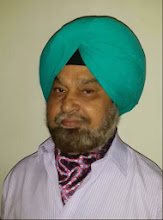General
Sector 33 is maintained by Noida as per their plan(s). RWA Sector 33 enjoins it on the concept of ‘Bhagidari’ by providing faithful inputs to the Noida administration for general welfare of its residents as per the Sector Bye laws.
Sector 33 has a number of Pockets. Blocks A, B and C like other Pockets in the Sector are not linked. It therefore does not render itself into a cohesive Sector in various ways. We need to customize our RWA Working accordingly.
It is felt that Central Control should remain with the elected RWA MC. However, routine operations can be decentralized and delegated to the Blocks. Community Centre should continue to be managed by the RWA MC; being a major source of earnings for welfare activities of the Community.
Changes proposed in our routine operational methods are enumerated in the succeeding paras. These could be discussed widely, modified and adopted by the GBM if found suitable.
Customized Delivery to the Blocks of Sector 33
1. RWA to be managed as per the approved Bye laws. Community Centre to be exclusively managed by the RWA 33 MC whereas routine RWA activities be decentralized and bifurcated Block-wise.
2. A, B and C Blocks be seen as indep entities within the RWA, and managed as such.
3. The Blocks could have different Membership Fee structure, minimum being Rs 1800 per year as of now. This would help the Blocks in adding / maintaining enhanced service facilities in their Blocks at their own costs, if they so like.
4. 30% of the Blocks' Membership Fee in this arrangement/system can given to the RWA for common use, balance 70% could be kept with the Blocks for use within their Blocks, as laid down by Us in the Bye laws for other Societies in the Sector like NTPC, Rail Vihar, Vidhalaya Sanghthan.. This would also help in ‘right’ application of the Funds within the Blocks.
5. 70% Membership Funds be applied and accounted for by the RWA MC Members of the respective Blocks (ie 3-4 elected Members of the Blocks already elected for the RWA MC). This will strengthen ‘goodwill’ amongst residents and would reduce routine bickering. We have enough ‘social activists’ in the Blocks/Sector. These could help the Blocks.
6. Fee collected from Reddiwalas, Signage/Hoardings, Tent Walas, Exhibitions/Show/Display Stands, Training Classes in the Community Centre, etc, be judiciously handled and accounted for by the RWA MC in a transparent manner and in full knowledge of the GBM.
7. RWA should work on a concept of ‘Urban Panchayats’ for general welfare of the Community incl dispute resolution, etc.
8. Residents Social Responsibility (RSR) in the Sector, discussed elsewhere on this Blog, should be strengthened for quality delivery. All of Us individually can reach Noida Services directly.
Conclusion
These are some of the thoughts to help revamp RWA Sector 33. These could be discussed and adopted with majority approval in the GBM.
We just need to be honest and transparent in our delivery.
Sukhwindar
